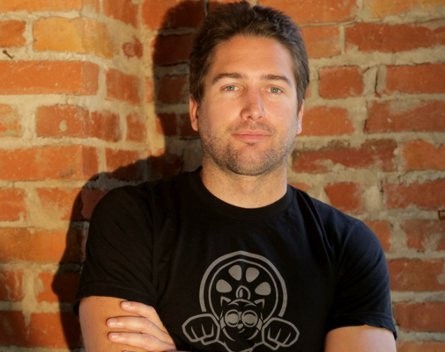
Sam Chandler says the growing Australian ecosystem has made a night and day difference to launching a tech company, nearly a decade after he founded Nitro in May 2005.
“It was a very different time back then. There were no accelerators or incubators. There were a couple of VCs, but they were mostly fully-invested and they didn’t have new funds that were actively investing. There were nowhere near the number of seed or angel stage investors. There weren’t any angel investment groups, meetups and things that are happening today,” Chandler says.
“So it was a far less rich ecosystem and it was a key part of the reason why we initially just raised a small amount of money and it was at the end of that second year that we raised a million dollars from angels, led by Andy Barlow, who was one of the cofounders of HitWise. It was only through Andy’s network that we raised that first million dollars because we didn’t really have any other options.
“It wasn’t as if we could just go into an accelerator or incubator, there weren’t any real seed stage funds in the market. We probably were too early – and probably not credible enough, given we were in our early 20s – to raise from a VC if they had a chequebook at the time.”
Chandler says Nitro sold services in its first year or two of operation to pay to get the new business off the ground.
“We focused on being profitable from day one – or at least cash flow positive – so not really making a lot of money but being able to pay the bills. We were profitable and were making revenue from day one. So we had our first sale of Nitro Pro happen 45 minutes after we went live, so we knew we were on to something from literally the first hour and from there we had to carefully manage cash flow.
“We’ve basically built the business for the past 10 years on cash flow because, up until Q4 of last year, we had not raised more than a total of $7.5 million.
“We raised $1 million in seed in January 2007, and then we raised a total of about $6.5 million from Starfish Ventures in 2012-13, and it was only a few months ago that we did our first really big round of $15 million that we raised from Battery Ventures.”
According to Chandler, even more important than the emergence of more sophisticated capital markets has been the increase in support available to entrepreneurs.
“The other key thing that has changed is that if you need help, with all stages of founding a startup and certainly the early stages, you’ve got resources. You’ve [now] got other entrepreneurs who have experience building businesses, you have meetups, you’ve got this great network, and none of that existed in 2005 when we launched.
“Today you could go out and find people who are doing very similar things, and you can get very explicit advice. Whereas, when I was starting out, I was looking for people who were just ‘successful in business’, and while I had a couple of people who I consider to be mentors, neither had any technology experience.
“When I think about what I really needed at that time, it was advice about how to hire a good CFO. But what does a good CFO look like? If you haven’t been a CFO, and you’ve never worked with a CFO, how do you know the difference between a good CFO, a great CFO and a terrible CFO?”
With the 2014 Startup Muster survey showing just 5% of startup founders were aged 20-24 and just 1% under 20, Chandler says age is no barrier to starting up a company such as Nitro.
“I think anyone can do it if they’ve got the right inclination. Startups aren’t for everyone. You need to be fairly comfortable with being your own boss and everything that goes along with that because it can be a poison chalice. But if you want to start a business, you can do it at any age if you’ve got the passion, the determination and the temperament.
“And if you’re young and you’ve got the best combination of attributes, the best thing you can do is to find a number of good mentors and listen to them. You don’t always have to do what your mentor says, but you have to think seriously about it. A lot about startups is counter-intuitive, and the only way to learn that what seems to be the right thing is wrong is to do it, see it fail, and then learn from that failure.”
Check back for part two of this interview, where Sam Chandler discusses his lessons from moving to Silicon Valley, and where the company is headed next.
Follow StartupSmart on Facebook, Twitter, and LinkedIn. Buy tickets to the 2015 StartupSmart Awards.


COMMENTS
SmartCompany is committed to hosting lively discussions. Help us keep the conversation useful, interesting and welcoming. We aim to publish comments quickly in the interest of promoting robust conversation, but we’re a small team and we deploy filters to protect against legal risk. Occasionally your comment may be held up while it is being reviewed, but we’re working as fast as we can to keep the conversation rolling.
The SmartCompany comment section is members-only content. Please subscribe to leave a comment.
The SmartCompany comment section is members-only content. Please login to leave a comment.